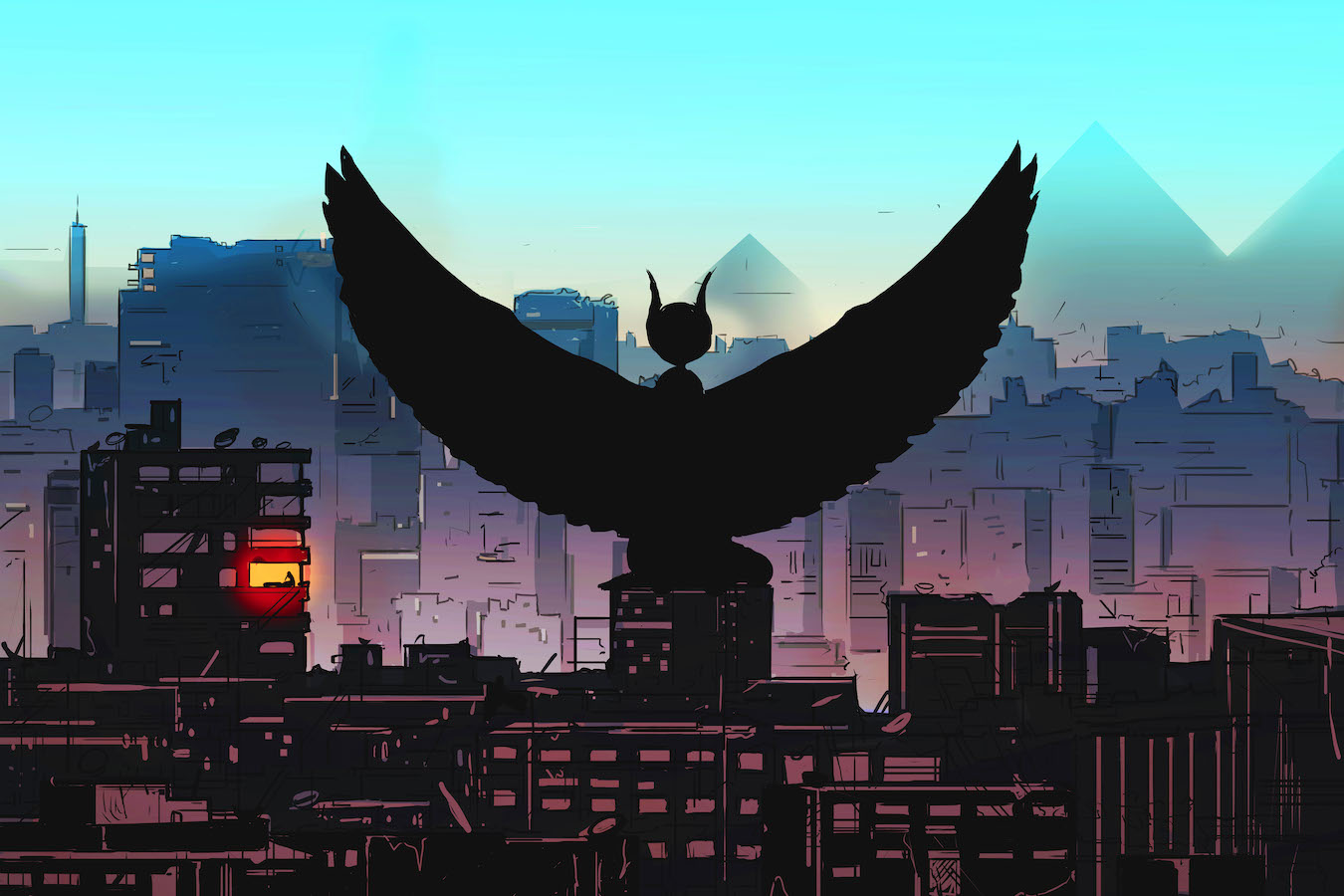AMSTERDAM: “It’s not a happy story.” Scotland-based Cairo-born playwright Sara Shaarawi is talking about “Niqabi Ninja,” her two-person play that is currently being ‘staged’ in London as part of Shubbak Festival — a celebration of contemporary Arab arts and culture — before moving on to five cities in Scotland. “It’s a revenge drama.”
The origins of “Niqabi Ninja” lie in a monologue Shaarawi created having been asked to write a piece on women in the Egyptian revolution of 2011. At first, Shaarawi says, she was “wary, particularly because I wasn’t one of them.” She had been in Cairo at the time of revolution, but “I wasn’t on the frontline.”
“I’m not trying to exploit anyone’s trauma to make audience’s feel bad or guilty — I’m not into that type of theater at all,” she stresses. “And I didn’t want to play into the Western gaze of people from the Middle East and North Africa — the very narrow roles of refugee, or revolutionary, or terrorist — I didn’t want to slot into that.”

“Niqabi Ninja” is a two-person play that is currently being ‘staged’ in London as part of Shubbak Festival. (Supplied)
But having heard about the mob sexual assaults that were rife in and around Tahrir Square at the time of the uprising, and in many of the protests over the years that followed, she decided to write a piece “about a young woman who’s (listing) all of the things that have happened to her throughout her life — the constant stares and cat calls and humiliation and objectification and sexualization — and who decides, when the mob sexual assaults happen, to buy a niqab and go out there and get her revenge.”
The monologue was well-received, and Shaarawi was encouraged to turn it into an hour-long piece, which is when it began to morph into its current form.

In “Niqabi Ninja,” Hana, an illustrator who is creating a comic book about all of her scariest experiences of being sexualized or objectified by men,. (Supplied)
“I’d written the monologue in a moment of fury,” Shaarawi says. “But I realized that what I was interested in, and what I’m trying to do, is connect how we’ve normalized behaviors like commenting on a stranger’s body… these things that people see as harmless because they haven’t physically hurt you, these things where we’ve said, ‘Well, boys will be boys. This is how things are.’ And by normalizing all of this, of course something like the mob sexual assaults in Tahrir were going to happen. It’s the natural end (when) they keep getting away with it until they think they can do whatever they want. That’s really what the play became about.”
In “Niqabi Ninja,” Hana, an illustrator who is creating a comic book about all of her scariest experiences of being sexualized or objectified by men, especially in public spaces, is ‘in conversation’ with the title character she has created, who is, Shaarawi says, “her shadow self, her fantastical alter ego — incredibly violent, really egging her on. A character that says all the things she wouldn’t say, basically. A narcissistic superhero. She’s very obsessed about how she looks and what weapons she’s going to have and what she’s going to do to the men —smashing people’s faces in and stuff like that. It’s a really dark character. But it’s a fantasy, at the end of the day. The whole play is really about her journey to becoming this superhero vigilante that she’s created in her head. So by the end she becomes the Niqabi Ninja.” She pauses. “Spoiler, sorry.”

The audience is equipped with MP3 players and headphones and guided through a set route while listening to a recording of the play performed by Juliana Yazbeck. (Supplied)
The current ‘theater’ for “Niqabi Ninja” is actually the city streets. The audience is equipped with MP3 players and headphones and guided through a set route while listening to a recording of the play performed by Rebecca Banatvala and Juliana Yazbeck, soundtracked by Egyptian composer and oudist BalQeis. The route is dotted with illustrations from Hana’s comic book by Egyptian artist Gehan Mounir.
As Shaarawi said, “Niqabi Ninja” is not a happy story. But there is humor in it, albeit very dark. And Shaarawi takes pains to stress that it is a fantasy, rather than a proposal for a practical solution to the issues it addresses.

The audience is equipped with MP3 players and headphones and guided through a set route while listening to a recording of the play performed by Rebecca Banatvala. (Supplied)
Still, even though the play was written in response to a very particular moment in Egypt, it has clearly resonated with women from outside of the Arab world too. And while any writer should be proud that their work can strike a chord with so many, Shaarawi isn’t especially glad about it.
“Every year the subject matter is still urgent and relevant. It just doesn’t stop,” she says. “Every reading it’s had, both in Scotland and in London, women come up to me and thank me afterwards. No matter what background or heritage they have, they relate to it. It has that universality. Its themes are still fresh in our experience, and that makes me really sad.”







0 التعليقات:
إرسال تعليق